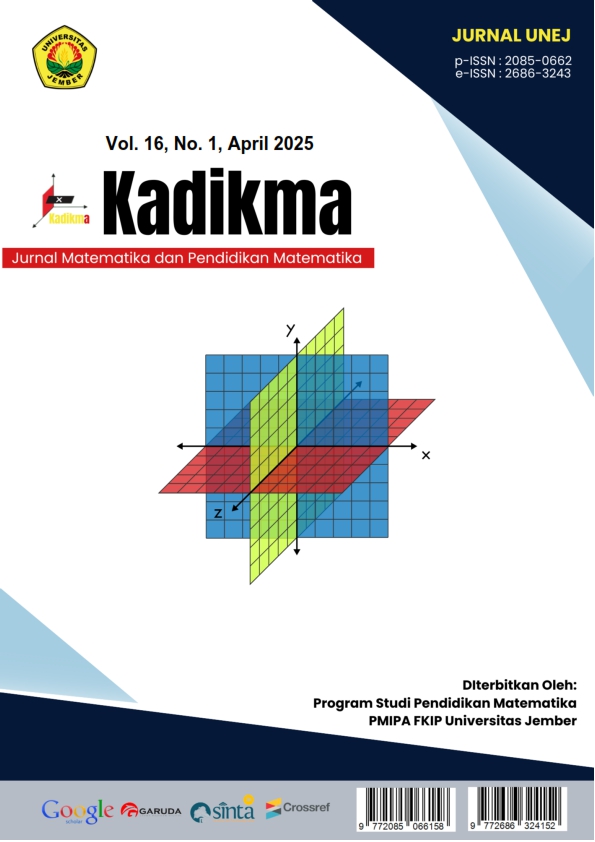Analisis Pengaruh Metode Mathemagic In Joyful Learning Terhadap Hasil Belajar Kognitif Siswa Berbasis Soal HOTS
Analisis Pengaruh Metode Mathemagic In Joyful Learning Terhadap Hasil Belajar Kognitif Siswa Berbasis Soal HOTS
Abstract
This study aims to analyze the effect of applying the mathemagic in the joyful learning method on the cognitive learning outcomes of junior high school students based on higher-order thinking skills (HOTS). The research design used a pre-experimental One-Group Pretest-Posttest with a sample of 30 students of class VII G of SMPN 1 Situbondo. The Sample was selected by purposive sampling from a population of 155 students. The research instrument was a HOTS-based test with 10 essay questions that had been validated using Pearson's product-moment correlation and tested for reliability with Cronbach's alpha. Data were analyzed using descriptive statistics and inferential statistics in the form of Pearson product-moment correlation, simple linear regression, and t-test. The results showed a very strong relationship between the mathemagic method and students' cognitive learning outcomes (R = 0.974). The relationship between the two variables is a causal relationship with a contribution of 94.8%. The t-test proves that the contribution of the influence is significant, with a t-count value = 22.707 > t-table = 1.701, and a sig.t value of 0.000 < 0.05. Thus, it is proven that the application of mathemagic in the joyful learning method has a significant effect on the cognitive learning outcomes of junior high school students based on HOTS questions
Keywords: Mathemagic Method, Joyful Learning, Cognitive Learning Outcomes, HOTS
Downloads
Downloads
Published
Issue
Section
License
Copyright (c) 2025 Annisaul Qoyyimah, Maswar Maswar, Saiful

This work is licensed under a Creative Commons Attribution-ShareAlike 4.0 International License.


.png)
.gif)




